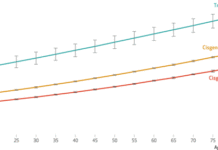
SACRAMENTO – Senator Scott Wiener (D-San Francisco) announced today that he has been appointed by Senate President Pro Tem Toni Atkins (D-San Diego) to chair the newly-formed Senate Select Committee on Monkeypox. Also appointed as members of the committee are Senators Susan Eggman (D-Stockton), John Laird (D-Santa Cruz), Rosilicie Ochoa Bogh (R-Yucaipa), Lena Gonzalez (D-Long Beach), and Richard Pan (D-Sacramento).
The Select Committee on Monkeypox will hold an oversight hearing on Tuesday, August 9 at 1:30 pm in Sacramento, with state and local health officials and experts.
“Monkeypox is a public health emergency, and we need to do everything we can to contain the outbreak,” said Senator Wiener. “Monkeypox is a painful and serious infection, and no one should have to endure it. We need to ensure California’s response, at both the state and local level, is effective and adequately funded. Our community is depending on us to deliver.”
Monkeypox, while rarely deadly, is a serious infection that can cause intense pain, scarring, and in some cases hospitalization. This spring, monkeypox spread beyond central and west Africa to other parts of the world, including the United States. Tragically, as is often the case when a disease targets marginalized communities the global and national public health response has been slow and deprioritized. We have a safe and effective vaccine for monkeypox — the Jynneos vaccine — yet the world did not flood impacted areas of Africa with the vaccine. Indeed, the United States chose to order only a small number of vaccine doses for its national vaccine stockpile and allowed tens of millions of doses to expire without replacing them.
Due to this federal public health failure, we have very limited vaccine supply. Gay and bisexual men and others at risk desperately want the vaccine in order to protect themselves and those around them. Yet, instead of quickly mobilizing into a mass vaccination campaign with this existing safe and effective vaccine, many of our counties lack the supply to vaccinate everyone seeking the vaccine. In San Francisco, for example, people have been waiting in lines for as long as 9 hours in the hope of getting a scarce vaccine. The long wait times create further barriers for low-income, marginalized communities to access the vaccine.
In addition, access to testing ia very limited. Across the state, people with symptoms haven’t been able to access testing, or can’t get test results for a week or longer. And far too many health providers know little to nothing about the virus, meaning that people are bounced around from provider to provider or simply cannot access care at all.
With the Select Committee on Monkeypox, the Senate will have the opportunity to identify what can be done in the short and medium terms to improve California’s response to the ongoing outbreak. Through this Committee, the Senate will convene experts from different professional and community backgrounds to discuss what can be done long-term to better respond to outbreaks of contagious viruses.








